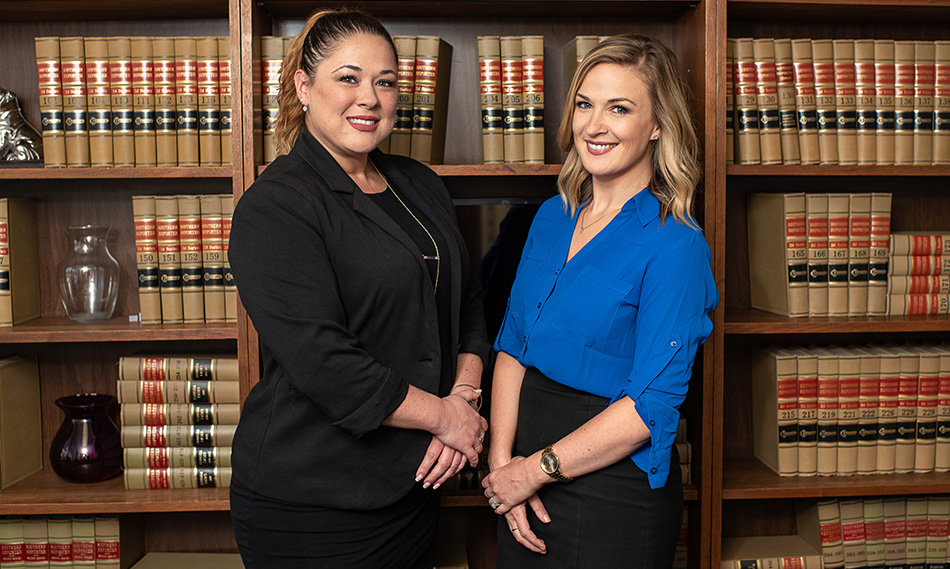
Trust Attorney in Jacksonville
Set Up a Trust in Jacksonville, FL with Edwards & Edwards, P.A.
Creating a trust can strengthen your estate plan and give you more control over what happens to your assets when you pass away. With trusts, you can make conditional gifts, avoid probate, and reduce your tax liability. You can also help your heirs manage your estate and use your assets the way you intended.
Choosing the right type of trust can significantly impact your estate planning goals, and it is crucial to understand the nuances between different trust structures. At Edwards & Edwards, P.A., we personalize trusts to align with our clients' unique objectives and circumstances, ensuring that their future wishes are honored and executed efficiently with our trust attorneys.
Reach out to an living trust lawyer in Jacksonville for experienced legal support. Call (904) 478-9255 or complete our online form to start the process promptly.
What Is a Trust?
According to Fidelity:
“A trust is a fiduciary arrangement that allows a third party, or trustee, to hold assets on behalf of a beneficiary or beneficiaries.”
When you create a trust, you put assets into a bank account (sometimes called a trust fund) and give a trustee the right to manage that bank account. Sometimes, you can maintain partial control of the trust while you are still alive and pass the control to another trustee when you die.
In addition to basic trust operations, trusts can ensure the seamless management of complex assets, including businesses and real estate investments. For specialized assets, having a trustee with expertise in specific areas can safeguard the long-term management and growth potential, allowing beneficiaries to benefit from both immediate and future endowments.
There are many types of trusts that vary according to their legal implications and benefits.
Trust Types Explained
The trust we described above (where you maintain control of the trust until you die) is called a living trust or inter-vivos trust. You can also create a testamentary trust or will trust, which specifies what happens to your assets when you die. A testamentary trust can be helpful if you wish to leave behind conditional gifts. For example, you may want to leave your daughter an inheritance – but only if she finishes college.
In a testamentary trust, the trustee can help ensure your wishes are followed and award funds according to certain conditions.
Trusts can also be revocable or irrevocable. You can change a revocable trust during your lifetime, but you cannot change an irrevocable trust. Most trusts become irrevocable when you die, and testamentary trusts are always irrevocable.
For tax reasons, irrevocable trusts are more favorable. You can avoid tax liabilities because the assets in a trust are no longer in your possession, and in many cases, are no longer taxable.
Different trusts also apply to different situations. Some common types of trusts include:
- Marital trusts
- Bypass or credit shelter trusts
- Testamentary trusts
- Irrevocable life insurance trusts
- Charitable lead trusts
- Charitable remainder trusts
- Generation-skipping trusts
- Qualified personal residence trusts
- Qualified terminable interest property trusts
- Grantor-retained annuity trusts
- Separate share trusts
- Spendthrift trusts
- Special needs trusts
- Blind trusts
- Totten trusts
The type of trust you choose will depend on what you want to do with your assets, which benefits of trusts are most important to you, and the details of your unique situation. Deliberate consideration of each type allows for strategic alignment with personal goals, such as ensuring sufficient financial provision for education, healthcare, and other specific commitments.
Our qualified trust attorney in Jacksonville is ready to help you. Get in touch via online form or call (904) 478-9255 to make an appointment right away.
Reasons to Add a Trust to Your Estate Plan
Setting up a trust can offer numerous benefits for you and your loved ones. Unlike a will, a trust can provide greater control over how your assets are distributed after your passing.
Here are some reasons why you should consider setting up a trust:
- Asset protection: A trust can protect your assets from creditors or lawsuits, ensuring they are preserved for your beneficiaries.
- Probate avoidance: A trust can help your beneficiaries avoid the time-consuming and costly probate process.
- Tax benefits: Depending on the type of trust you set up, you may be able to reduce or eliminate estate taxes.
- Privacy: Unlike a will, a trust is a private document and does not become a matter of public record.
- Flexibility: A trust can be tailored to meet your specific needs and can be changed or revoked at any time.
Expanding on these benefits, consider how a trust can facilitate smoother transitions of wealth management within your family structure. By defining specific conditions and beneficiaries, a trust can cater to complex family dynamics, minimize potential disputes, and clearly outline future financial planning strategies.
Our Jacksonville trust lawyers at Edwards & Edwards, P.A. can help you navigate the complex process of setting up a trust. Contact us today to schedule a consultation and start planning for your future.
If you’d like to add a trust to your estate plan, Edwards & Edwards, P.A. can help. We have more than 65 years of combined experience, and as a sister-owned, family-operated firm, we understand what’s at stake.
Navigating Florida Trust Laws
Navigating Florida trust laws can be challenging due to the specific statutes that govern trusts and estates in the state. Key provisions include the requirement for trustees to act in the best interest of beneficiaries, maintain open communication, and ensure transparent management of trust assets. Florida law also mandates that certain trusts must be registered with the court, and trustees may be required to provide annual accountings to beneficiaries.
Being informed about these requirements helps in ensuring compliance and avoiding legal pitfalls. Edwards & Edwards, P.A. provides comprehensive assistance in understanding these complexities, making sure that Jacksonville residents are equipped with the knowledge to manage their trusts effectively and confidently. Our approach includes educating clients on their legal responsibilities and potential tax implications, helping them make informed and strategic decisions to protect their legacy.
Understanding Trust Litigation in Jacksonville
Trust litigation involves resolving disputes related to the validity, interpretation, or administration of a trust. Common issues include allegations of undue influence on the grantor, questions regarding the mental capacity of the trust creator, or disputes among beneficiaries about the distribution of assets. In Jacksonville, the complexities of trust litigation may also involve Florida's specific probate laws, which can affect how disputes are handled in the courts.
Jacksonville residents often require nuanced legal assistance due to the diverse set of state regulations that may apply. At Edwards & Edwards, P.A., we pride ourselves on providing thorough and compassionate legal guidance during trust disputes, aiming to resolve matters efficiently while protecting our clients' interests. Whether addressing fiduciary mismanagement, contesting specifics of a will, or defending a trust's intentions, having a localized approach ensures readiness for every unique situation.
Call a living trust attorney in Jacksonville at (904) 478-9255 to learn more about setting up a trust in Jacksonville, FL.

Why Choose Edwards & Edwards, P.A.?
-
Over 65 Years of Combined Experience
-
Wide Range of Legal Services Available
-
Responsive to Client Communication
-
Sister-Owned Firm, Entirely Run by Women

-
 Real Cases. Real Results.Hear from our past clients and their experiences.
Real Cases. Real Results.Hear from our past clients and their experiences. -
 Client TestimonialsDiscover how we’ve made a difference in the lives of our clients.
Client TestimonialsDiscover how we’ve made a difference in the lives of our clients. -
 Join Our TeamView our Open positions and apply.
Join Our TeamView our Open positions and apply. -
 Stay InformedRead our blog to stay in the know.
Stay InformedRead our blog to stay in the know.
Partner with a certified, women-owned business recognized nationally for its dedication, expertise, and commitment to outstanding service.




